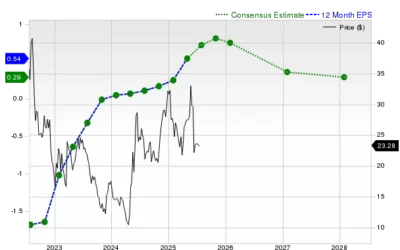Introduction
The journey towards aerial mobility has taken significant strides in recent years, with companies like Joby Aviation leading the charge. As flying taxis inch closer to reality, a combination of innovative technology and strategic partnerships is pushing Joby to the forefront of this emerging industry. Notably, a partnership with automotive giant Toyota has provided Joby with the necessary impetus to move towards commercialization. Alongside this, investor sentiment around the company is budding, with discussions surrounding its potential being likened to ‘one trillion reasons’ for optimism.
Joby Aviation: Pioneering Flying Taxi Technology
Founded in 2009, Joby Aviation is a California-based aerospace company that specializes in the design and manufacture of electric vertical takeoff and landing (eVTOL) aircraft. With a mission to provide affordable air travel for everyone, Joby has developed an aircraft that can carry up to four passengers and one pilot over a distance of 150 miles at speeds of up to 200 miles per hour. This is a game-changer for urban mobility, allowing for the swift transportation of people across congested cities without relying on traditional ground-based transportation.
The Partnership with Toyota
In 2020, Joby Aviation secured a notable investment from Toyota, totaling $394 million. This partnership was more than just a financial boost; it opened the door to collaborating on manufacturing and scaling operations, harnessing Toyota’s expertise in logistics and production. The alliance signifies a vital step in Joby’s journey toward introducing its flying taxis to the market, as Toyota’s infrastructure and resources are crucial for mass production and distribution.
Understanding the Impact of the Partnership
The collaboration with Toyota comes at a time when public sentiment towards electric vehicles is at an all-time high, partly due to increasing concerns over climate change and sustainability. Joby’s all-electric eVTOL aircraft aligns perfectly with this trend. The partnership not only provides financial capability but also amplifies production capabilities, ensuring that Joby can meet increasing demand as regulatory approvals are secured. This association has positioned Joby as a robust contender in the aerial transportation sector.
Regulatory Approval and Market Readiness
No matter how innovative the technology is, it must clear the stringent regulations set forth by aviation authorities. Joby is actively engaging with the Federal Aviation Administration (FAA) and is currently working on obtaining Joint Certification for its aircraft. This process can take time; however, Joby is well ahead of the competition, launching initiatives like flight testing programs to demonstrate the efficacy and safety of their aircraft.
The Importance of Certification
Certification is crucial for Joby. It provides an official acknowledgment that their aircraft meets rigorous safety standards. If successful, Joby Aviation could become the first eVTOL manufacturer to gain certification in the US, setting a precedent and potentially signaling a shift in consumer perception toward flying taxis as a viable mode of transportation.
Investor Confidence: The ‘One Trillion Reasons’ Statement
The value of a stock often reflects investor confidence, and in the case of Joby Aviation, sentiments are currently on the rise. Investors have termed their interest in Joby as being backed by ‘one trillion reasons.’ This phrase encapsulates the potential market that aerial taxi services could unlock. With urban congestion at an all-time high, the demand for aerial transportation could lead to an industry valued at over a trillion dollars globally.
Market Potential for Aerial Mobility
Industry analysts forecast that the aerial taxi market could reach $1 trillion by 2040, driven by advancements in technology, increased urbanization, and a growing middle class eager for innovative travel solutions. For Joby, this data presents a unique opportunity. Given its advanced aircraft design, early entry into the market, and significant funding, the company stands to capture a sizable share of this future growth.
The Competitive Landscape
Joby Aviation isn’t alone in the flying taxi space; various companies are vying for a piece of the emerging market. Competitors include Archer Aviation, Volocopter, and others. However, Joby has a distinct advantage in terms of technology, partnerships, and developmental progress. While others are still conceptualizing their technologies, Joby has a fully functioning prototype and is actively testing its aircraft.
Advantages Over Competitors
This competitive edge becomes evident when considering Joby’s substantial investment in research and development. Joby’s commitment to electric flight and noise reduction technologies makes their aircraft not only eco-friendly but also suitable for urban environments where noise pollution is a significant concern. Compared to traditional helicopters, Joby’s aircraft are expected to be markedly quieter, making them more acceptable to the communities they serve.
Environmental Implications and Sustainability
As sustainability continues to be a focal point in transportation, Joby Aviation’s electric aircraft are designed with the environment in mind. Conventional air travel is notorious for high carbon emissions, but Joby’s all-electric model aims to mitigate these environmental impacts. The transition to electric flying taxis can significantly reduce urban pollution, an essential goal for cities looking to improve air quality.
The Path to Sustainable Air Travel
Joby’s focus on sustainability also helps to improve investor appeal. Environmentally conscious investors are increasingly looking to back companies that prioritize green technology, which aligns perfectly with Joby’s mission. As cities worldwide begin to adopt stricter regulations regarding emissions and pollution, Joby is well-positioned to lead the shift toward cleaner urban transportation.
The Future of Joby Aviation
As we look to the future, Joby Aviation is poised for scalability and growth. The company’s partnership with Toyota, advancements in technology, and proactive approach towards regulations all support its trajectory toward becoming a profitable venture. Furthermore, as urban populations swell and transportation infrastructure struggles to keep pace, Joby’s flying taxis may very well become an essential mode of transport in cities around the globe.
Investor Outlook
For investors, Joby represents an opportunity to be part of a groundbreaking movement. The excitement surrounding aerial mobility has captivated market interest, and Joby’s position as a pioneering force bodes well for its stock performance. The potential for significant returns is coupled with increasing investor confidence, as seen in the company’s rising stock prices following announcements of successful testing milestones and progress towards certification.
Conclusion
Joby Aviation’s journey is emblematic of the broader shift towards innovative transport solutions. The collaboration with Toyota, coupled with an aggressive strategy focused on certification and technological superiority, sets Joby apart in the growing eVTOL market. With investor enthusiasm echoing sentiments of ‘one trillion reasons,’ the future for Joby looks bright as it gets ready for takeoff in the new era of aerial transportation. Flying taxis may soon no longer be just a figment of science fiction but a practical reality enhancing urban mobility, providing efficient, eco-friendly alternatives to traditional travel methods.






